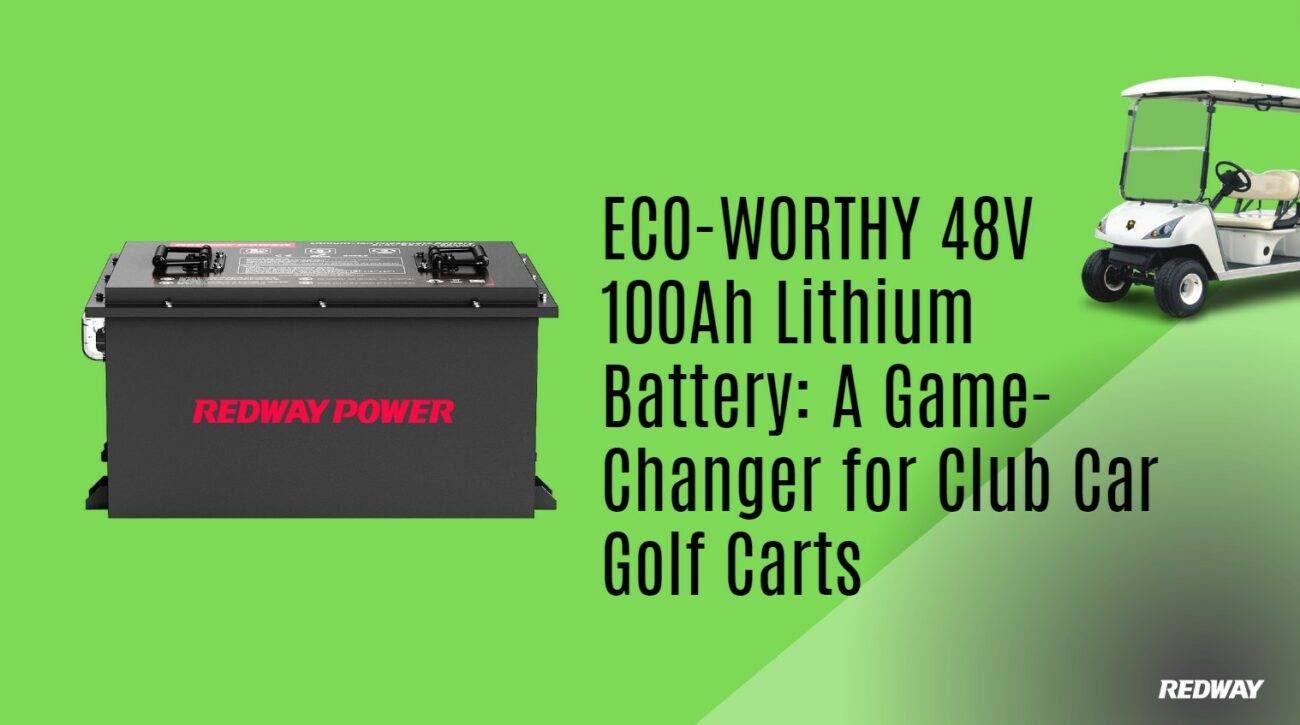- Forklift Lithium Battery
-
48V
- 48V 210Ah
- 48V 300Ah
- 48V 420Ah (949 x 349 x 569 mm)
- 48V 420Ah (950 x 421 x 450 mm)
- 48V 456Ah
- 48V 460Ah (830 x 630 x 590 mm)
- 48V 460Ah (950 x 421 x 450 mm)
- 48V 460Ah (800 x 630 x 600 mm)
- 48V 460Ah (820 x 660 x 470 mm)
- 48V 500Ah
- 48V 560Ah (810 x 630 x 600 mm)
- 48V 560Ah (950 x 592 x 450 mm)
- 48V 600Ah
- 48V 630Ah
-
48V
- Lithium Golf Cart Battery
- 12V Lithium Battery
12V 150Ah Lithium RV Battery
Bluetooth App | BCI Group 31
LiFePO4 Lithium
Discharge Temperature -20°C ~ 65°C
Fast Charger 14.6V 50A
Solar MPPT Charging - 24V Lithium Battery
- 36V Lithium Battery
- 48V Lithium Battery
-
48V LiFePO4 Battery
- 48V 50Ah
- 48V 50Ah (for Golf Carts)
- 48V 60Ah (8D)
- 48V 100Ah (8D)
- 48V 100Ah
- 48V 100Ah (Discharge 100A for Golf Carts)
- 48V 100Ah (Discharge 150A for Golf Carts)
- 48V 100Ah (Discharge 200A for Golf Carts)
- 48V 150Ah (for Golf Carts)
- 48V 160Ah (Discharge 100A for Golf Carts)
- 48V 160Ah (Discharge 160A for Golf Carts)
-
48V LiFePO4 Battery
- 60V Lithium Battery
-
60V LiFePO4 Battery
- 60V 20Ah
- 60V 30Ah
- 60V 50Ah
- 60V 50Ah (Small Size / Side Terminal)
- 60V 100Ah (for Electric Motocycle, Electric Scooter, LSV, AGV)
- 60V 100Ah (for Forklift, AGV, Electric Scooter, Sweeper)
- 60V 150Ah (E-Motocycle / E-Scooter / E-Tricycle / Tour LSV)
- 60V 200Ah (for Forklift, AGV, Electric Scooter, Sweeper)
-
60V LiFePO4 Battery
- 72V~96V Lithium Battery
- Rack-mounted Lithium Battery
- E-Bike Battery
- All-in-One Home-ESS
- Wall-mount Battery ESS
-
Home-ESS Lithium Battery PowerWall
- 24V 100Ah 2.4kWh PW24100-S PowerWall
- 48V 50Ah 2.4kWh PW4850-S PowerWall
- 48V 50Ah 2.56kWh PW5150-S PowerWall
- 48V 100Ah 5.12kWh PW51100-F PowerWall (IP65)
- 48V 100Ah 5.12kWh PW51100-S PowerWall
- 48V 100Ah 5.12kWh PW51100-H PowerWall
- 48V 200Ah 10kWh PW51200-H PowerWall
- 48V 300Ah 15kWh PW51300-H PowerWall
PowerWall 51.2V 100Ah LiFePO4 Lithium Battery
Highly popular in Asia and Eastern Europe.
CE Certification | Home-ESS -
Home-ESS Lithium Battery PowerWall
- Portable Power Stations
What is the Lifespan of a 48V Golf Cart Lithium Battery?
When it comes to golf cart batteries, understanding their lifespan is crucial for both fleet managers and private owners. The 48V lithium-ion golf cart battery has emerged as a prominent choice due to its superior performance and longevity compared to traditional lead-acid batteries. This article delves into the lifespan of these batteries, exploring factors that influence their longevity and how to maximize their performance.
Average Lifespan of a 48V Lithium-Ion Golf Cart Battery
On average, a 48V lithium-ion golf cart battery has a lifespan that varies based on its use and maintenance. In fleet settings where batteries are subjected to more rigorous use, you can expect a lifespan of approximately 4 to 6 years. These batteries are typically well-maintained but experience more frequent charging and discharging cycles. For private golf cart owners who may use their carts less frequently and follow optimal maintenance practices, the lifespan can extend to 6 to 10 years.
Lithium-Ion Battery vs. Traditional Lead-Acid Batteries
When comparing lithium-ion batteries to traditional lead-acid batteries, the advantages are striking. Lithium-ion batteries generally offer:
- Longer Lifespan: Lithium-ion batteries outlast lead-acid batteries significantly. While lead-acid batteries might need replacement every 2 to 4 years, lithium-ion batteries provide a longer service life.
- Faster Charging Times: Lithium-ion batteries charge faster, which means less downtime for your golf cart.
- Higher Efficiency: They are more efficient, offering better energy storage and usage.
- Reduced Maintenance: Lithium-ion batteries require less maintenance compared to their lead-acid counterparts, which often need periodic checks and water refills.
Factors Affecting the Lifespan of a 48V Lithium-Ion Battery
Several factors influence the longevity of a 48V lithium-ion golf cart battery. Understanding these can help in optimizing battery life and performance.
1. Usage Patterns
The frequency and manner in which the golf cart is used play a significant role in battery lifespan. Regular, heavy usage leads to more charge cycles, which can decrease the battery’s overall life. Conversely, infrequent use can extend the battery’s lifespan, provided it’s maintained properly.
2. Charging Practices
Proper charging habits are critical. Overcharging or undercharging can adversely affect battery health. It is recommended to charge the battery when it reaches about 20% of its charge capacity rather than letting it deplete completely. Using a quality charger designed for lithium-ion batteries will also contribute to longer battery life.
3. Maintenance
Regular maintenance is essential for prolonging the lifespan of a golf cart battery. This includes:
- Keeping the Battery Clean: Dirt and debris can impact battery performance and cause overheating.
- Checking Battery Connections: Ensuring that all connections are secure prevents power loss and potential damage.
- Storage Conditions: Storing the battery in a cool, dry place when not in use can help maintain its health.
4. Environmental Factors
The environment in which the battery operates can also affect its lifespan. Extreme temperatures, both hot and cold, can influence battery performance. Lithium-ion batteries typically perform well in moderate temperatures, so avoiding exposure to extreme conditions is advisable.
5. Quality of the Battery
The quality of the lithium-ion battery itself is a fundamental factor. Batteries from reputable manufacturers with high-quality cells and components tend to have longer lifespans. Investing in a well-reviewed and trusted brand can make a significant difference in battery longevity.
Maximizing the Lifespan of Your 48V Lithium-Ion Golf Cart Battery
To ensure you get the most out of your 48V lithium-ion golf cart battery, consider the following tips:
1. Follow Manufacturer’s Recommendations
Always adhere to the manufacturer’s guidelines for charging, maintenance, and usage. These recommendations are tailored to maximize the battery’s performance and lifespan.
2. Invest in a Battery Management System
A battery management system (BMS) can help monitor the battery’s health and optimize charging. This system can prevent overcharging, excessive discharging, and other conditions that may shorten battery life.
3. Regular Inspections
Perform regular inspections of the battery to identify and address potential issues before they become major problems. Look for signs of wear, corrosion, or other irregularities.
4. Use Proper Charging Equipment
Using the appropriate charger designed for lithium-ion batteries ensures efficient and safe charging. Avoid using chargers not recommended by the battery manufacturer.
Conclusion
The 48V lithium-ion golf cart battery offers a notable improvement over traditional lead-acid batteries, with an average lifespan of 4 to 10 years depending on usage and maintenance. By understanding the factors that affect battery life and following best practices for usage and maintenance, you can maximize the performance and longevity of your battery. Investing in a high-quality battery and adhering to proper care protocols will ensure that you enjoy reliable and extended service from your golf cart.


















